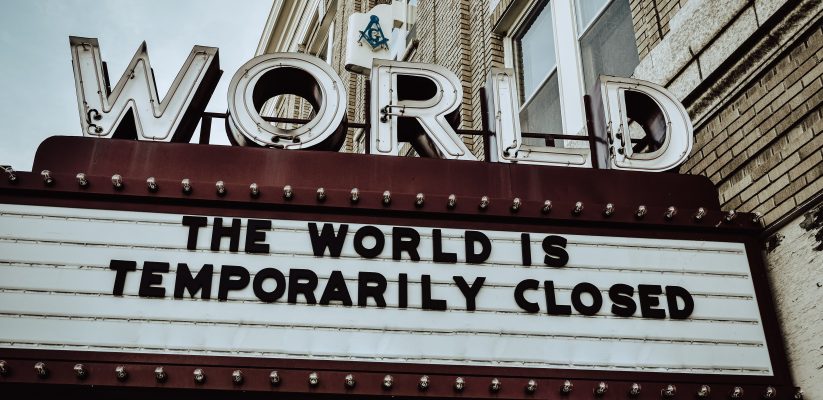Authors: Dr Brad Elliott and Luna Mia Sigle
Just over two years ago, one of those once-in-a-lifetime experiences happened at the University of Westminster. After weeks of building news and growing global concern around an emerging virus, we closed the University – something I do not think we have ever done before. All colleagues and students received an email effectively saying “please, do not come in on Monday”.
Breaking down office….very weird. To re-assemble at home 😕 For how long???#workingfromhome pic.twitter.com/NwiFKmrRxZ
— Sarah Kate Coleman (@sarahkcoleman) March 19, 2020
Slightly immodestly, in the School of Life Sciences (where my ‘day job’ is based), we had more of an inkling than most people of how serious this was going to be. And yet, I doubt any of us had a clue how long this would actually go on for. Tentative predictions were far from accurate; mine was off by almost a year.
— Bradley Elliott (@Brads_science) March 19, 2020
Possibly one of the oddest professional experiences of my life must be showing up to give a 9am lecture days before the first lockdown, only to find a 100 seat theatre empty, yet having to deliver the lecture anyway to a (surprisingly interested) cameraman while we streamed it online.
A year today since my last campus lecture before the Covid-19 shutdown pic.twitter.com/B71nmmnwqR
— Bradley Elliott (@Brads_science) March 17, 2021
Since then, how normal talking to web cameras and laptop screens has become. The pandemic has continuously changed society around us. As a life scientist who has always been involved in public engagement, one of the most interesting aspects was to see how wider society had to learn ‘my’ language. Terminology such as relative risk, R-values and uncertainty went from the ‘very hard to explain’ category to topics of national conversation overnight. What once were difficult ideas and concepts to convey in science communication events or talks, had all of a sudden become familiar to the average person. Suddenly, all of social media were experts in statistical inference and infection rates.
To others, living through a national lockdown was an experience that will never be forgotten for many reasons. It changed the way we see the world. We collected people’s quotes on their experience through the pandemic and these were some of their responses.
Will never ever take for granted the ability to just be able to walk without restrictions in my city – free of fear, free of the fear of getting infected by a potentially lethal virus, free of the fear that even meeting friends/family might kill them… or me. 🙌🏽🙌🏽
— Khalid Akram خالد أکرم (@chkyourbrain) March 14, 2022
I’ll never forget how fragile the supply chains that stock our cities truly are pic.twitter.com/nDvkgr7rqg
— Bradley Elliott (@Brads_science) March 21, 2022
I saw the very best of human nature but also the worst. The best was to connect with our neighbourhood and to help each other. helping by doing groceries for an elderly person or someone having COVID and feeling poorly. The worst: people being selfish and not caring for others
— Nadège Presneau PhD, MRSB 😷 🧬🔬 (@presneau_n) March 21, 2022
However, the biggest surprise has to be how long this lasted. In those early days, when we packed up our desks and built streaming setups at home to maintain continuity of teaching and research group meetings, no one expected this to become ‘the new normal’. But we survived. We tried things, failed, learned and moved on, growing new skills and even keeping some aspects of them as we moved back to in-person events and teaching.
Brave new world! 100’s of students viewing, let’s see how we go.
— Bradley Elliott (@Brads_science) September 21, 2020
Welcome to 1st year Human Physiology! pic.twitter.com/VWvh3eScqU
One of the great advantages was the ability to ‘appear’ at so many more conferences, talks and seminars around the world. No more did invitations require expensive airline tickets and thus invited talks did not have to be at major events. Getting to speak in seminars worldwide from your bedroom, living room or kitchen ‘office’ entailed a great equalizing effect for different scales of events. All that said, learning to film and edit your own pre-recorded talks has to be a special type of hell.
Pre-recording your talks is a special type of hell, followed only by editing them afterwards.
— Bradley Elliott (@Brads_science) October 22, 2021
Here we have the face of a man whose said something dumb in the first 10 seconds and is starting again….. pic.twitter.com/iR0fisuqDh
The pandemic is not over, but as we say goodbye to the last Covid restrictions in the UK and emerge into a changed world, the question arises: ‘what did this life-changing event mean for you?’.
